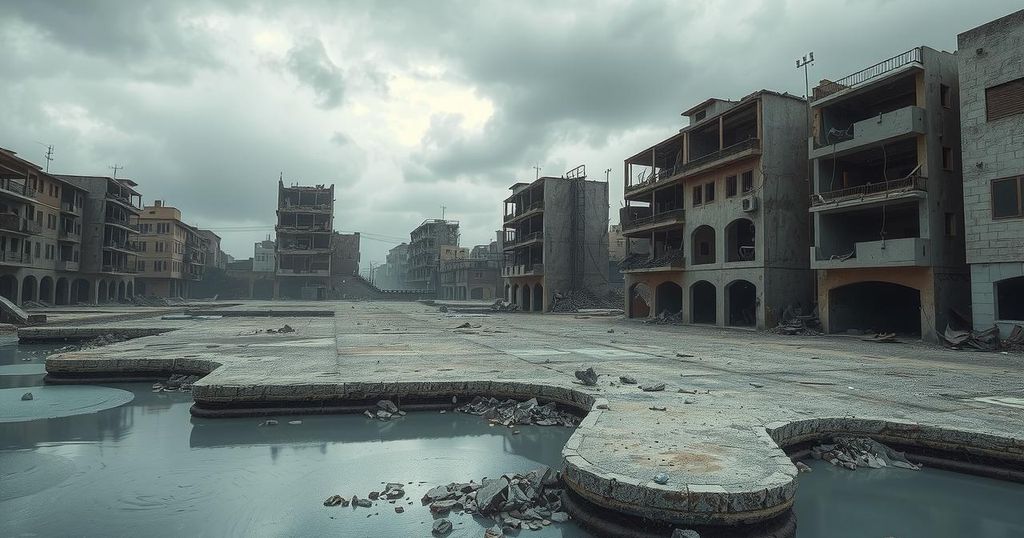Cholera Outbreak in Sudan Claims 172 Lives Amid Ongoing Crisis

A cholera outbreak in Sudan has resulted in 172 deaths and over 2,500 illnesses. Centered in Khartoum and Omdurman, the outbreak follows the return of displaced individuals amid a failing health system. Concerns about overwhelmed treatment facilities and inadequate sanitation are growing. The conflict in Sudan continues to fuel this public health crisis.
A cholera outbreak in Sudan is currently wreaking havoc, claiming 172 lives with over 2,500 individuals falling ill. This alarming increase in cases primarily surrounds the capital city of Khartoum and the neighboring Omdurman, driven by a return of displaced citizens seeking refuge in a nation ravaged by civil war and an imploding health system. Conditions are dire, with compromised water supply infrastructure contributing to this fast-spreading illness, as many people are left with no choice but to consume contaminated water.
According to the Sudanese Health Ministry, the past week has seen reported cholera cases jump dramatically. UNICEF highlighted in a recent statement that daily case reports skyrocketed from 90 to 815 between May 15 and May 25. Since the beginning of 2023, more than 7,700 cholera diagnoses have been documented, impacting more than 1,000 vulnerable children under age four. While most cases are concentrated in the capital region, instances have also emerged in several surrounding provinces,
The severity of the situation in Omdurman has led Doctors Without Borders to voice concerns regarding the sudden influx of patients overwhelming their facilities. “Scenes are disturbing,” remarked Joyce Bakker, the organization’s coordinator for Sudan. Tragically, many patients arrive too late for treatment as health resources are stretched to their limits—only a portion of those affected can receive adequate care.
The origin and escalation of the outbreak are tied closely to the ongoing civil war ravaging the nation. Khartoum and Omdurman have experienced devastating combat, leading to damaged homes and depleted public utilities. An estimated 34,000 individuals have returned to these heavily impacted areas this year, yet they face severe shortages of clean water and sanitation due to destroyed infrastructure and frequent attacks on vital service facilities.
Dr. Rania Elsayegh from Sudan’s Doctors for Human Rights stated that many locals are resorting to drinking contaminated water, contributing to the outbreak’s inclusivity. The health concerns are exacerbated by overcrowded displacement centers, which make it increasingly difficult to isolate those infected, and a health system in shambles—more than 80% of the hospitals currently remain non-operational.
Cholera itself is viewed by the World Health Organization as a “disease of poverty,” festering in regions with poor sanitation and insufficient clean water. Contracted through contaminated food or water, gravelly outcomes include severe diarrhea and dehydration, which can become life-threatening quickly without treatment. Thankfully, cholera is treatable with rehydration solutions and antibiotics, yet the global stock of oral cholera vaccines has decreased significantly.
The conflict in Sudan has a bleak genesis that began in April 2023, as military tensions erupted into war. Death tolls reach at least 24,000 and displacement numbers exceed 14 million citizens, with millions seeking refuge in neighboring countries. The ongoing famine crisis, particularly acute in Darfur, further complicates the humanitarian landscape, alongside reports of horrendous violations of human rights.
Cholera is not a stranger to Sudan. The country previously experienced epidemics, like a severe outbreak in 2017 that resulted in about 700 deaths and more than 22,000 illnesses in a short timeframe. Given the ongoing devastation from the current war, repeated outbreaks continue to surface, producing staggering numbers of affected individuals. Recently, there have been simultaneous reports of a dengue outbreak and meningitis, showcasing the broader public health challenges in these beleaguered regions.
In conclusion, the cholera outbreak in Sudan signifies a critical humanitarian crisis exacerbated by ongoing war and infrastructure collapse. With hundreds of lives already lost and thousands affected, urgent actions are necessary to address the dire water and sanitation conditions worsening the situation. As health facilities struggle to cope, the international community may need to intervene to restore basic health services and mitigate further tragedy in this war-torn nation.
Original Source: www.newsday.com






